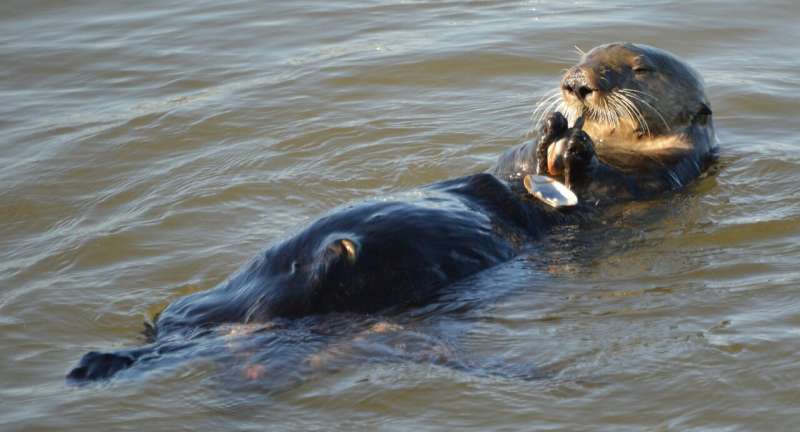New study examines success of Monterey Bay Aquarium sea otter rehabilitation program

A new study, authored by experts at Monterey Bay Aquarium and their partners, examines the development of its landmark sea otter rehabilitation program and how it can support sea otter recovery and reintroduction. Published in the Journal of Zoological and Biological Gardens, the research recounts its successes and challenges, showing how the program benefits both species recovery and ecosystem benefits.
The findings also reinforce the important role institutions such as Monterey Bay Aquarium have in conservation, research, and recovery of endangered species. Learning from the Aquarium's Sea Otter Program can aid other rehabilitation and conservation partners with similar goals and help improve conservation efforts in the future.
"The study demonstrates the success of surrogacy as a comprehensive rehabilitation effort, built upon decades of learned lessons, rigorous research and collaboration," said Jess Fujii, Manager for the Sea Otter Program at Monterey Bay Aquarium. "As we work toward the recovery of the southern sea otter, insights from this research will be essential for our work and that of other institutions with similar goals."
Southern sea otters once thrived as far south as Baja, Mexico. But overhunting reduced both the subspecies' numbers and geographic range. A small population of about 50 otters, which survived in the refuge of the Big Sur Coast, has grown to around 3,000 and is found as far north as Pigeon Point and as far south as Point Conception. The success of the Sea Otter Program, along with the aid of an expanding network of partnering organizations, may support further reintroduction efforts to southern sea otters' historical range in California.
Since the Aquarium opened in 1984, the sophistication of its sea otter conservation work evolved from hand-rearing pups—exposing them to their natural environment through swims with sea otter care staff—to removing as much contact with people as possible.
Recognizing that close interaction with humans made it more difficult for orphaned pups to return to the wild, the Aquarium attempted using non-releasable females as surrogate mothers to rehabilitate dependent pups. While this approach was tried early in the program's history without success, the second effort proved remarkably successful.
The new method allowed resident female sea otters with strong maternal instincts to teach the orphaned pups the behaviors needed to survive in the wild. This method also increased post-release survival with 71% of surrogate-reared pups making it compared to 27% that underwent human-led rehabilitation.
This surrogacy innovation also yielded positive results for ecosystem health in one of the Aquarium's primary release sites, Elkhorn Slough. Reintroduction of otters into this Monterey Bay estuary resulted in the rapid improvement of the overall health of the waterway and the resurgence of eelgrass meadows, which are a habitat for juvenile fish and provide significant benefits in the fight against climate change.
"We are seeing the success of their release back into the wild," said Leilani Konrad, the study's lead author and Monterey Bay Aquarium Sea Otter Program Research Biologist. "By looking to lessons from the past, we can continue to strive forward to secure sea otter survival on California's coast, and improve the long term health of the ecosystems they inhabit."
More information: Leilani Konrad et al, Southern Sea Otter Rehabilitation: Lessons and Impacts from the Monterey Bay Aquarium, Journal of Zoological and Botanical Gardens (2022). DOI: 10.3390/jzbg3040047
Provided by Monterey Bay Aquarium




















